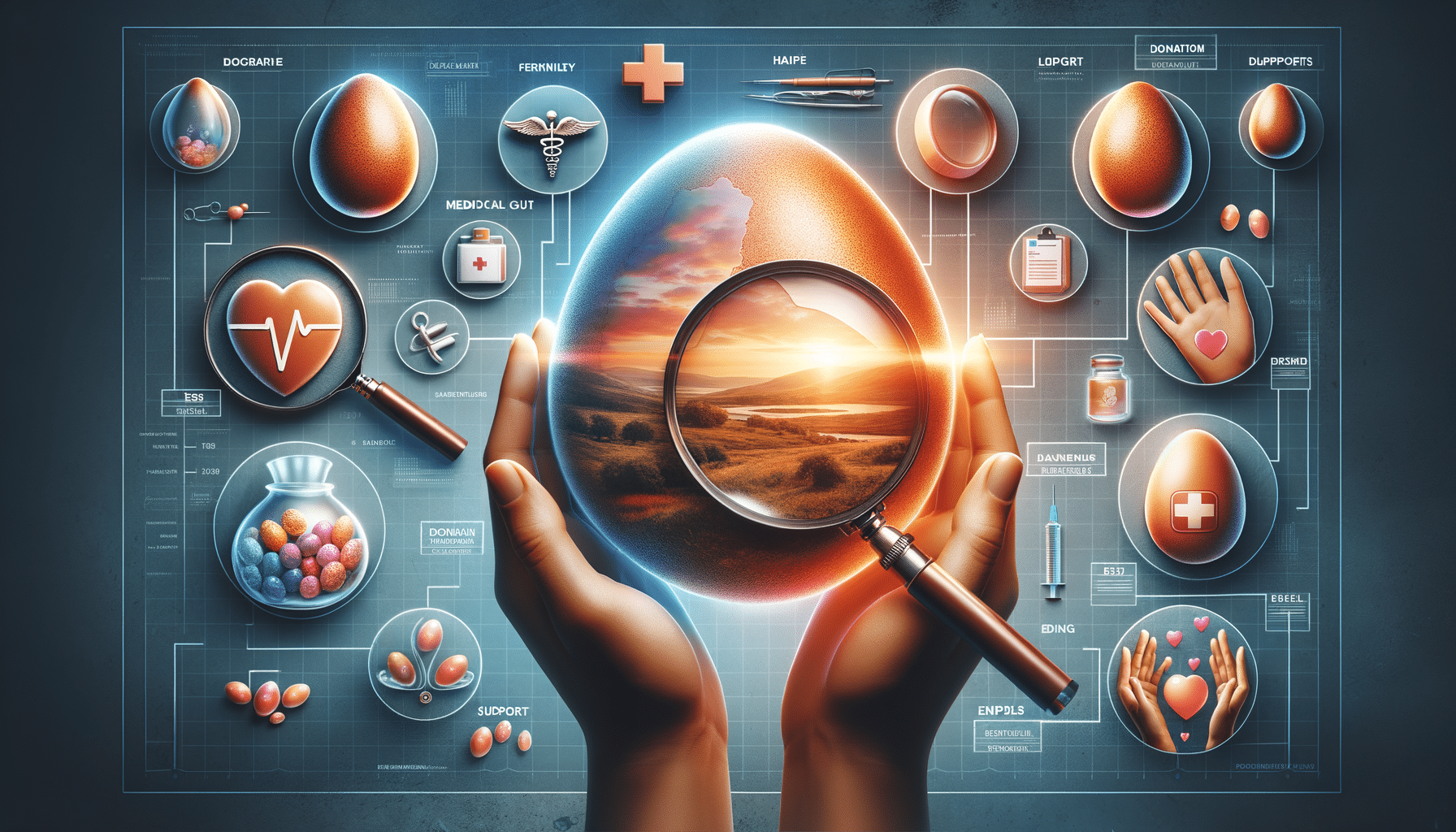
Understanding Local Egg Donor Agencies and Their Role in Fertility Programs
Introduction to Egg Donation and Its Importance
Egg donation has become a significant aspect of modern reproductive medicine, offering hope to many individuals and couples who face challenges in conceiving. This process involves a donor providing eggs to assist intended parents in achieving pregnancy, either through in vitro fertilization (IVF) or gestational surrogacy. The role of local egg donor agencies is crucial in facilitating this process, ensuring that it is conducted ethically and efficiently.
Egg donation fertility programs are designed to support those dealing with infertility, genetic conditions, or other reproductive issues. These programs not only provide medical procedures but also offer emotional support and counseling to both donors and recipients. Understanding the intricacies of these programs can help potential donors and recipients make informed decisions about their reproductive futures.
The Role of Local Egg Donor Agencies
Local egg donor agencies play a pivotal role in the egg donation process. These agencies act as intermediaries between donors and recipients, ensuring that both parties are well-informed and comfortable with the procedures involved. They are responsible for screening potential donors, matching them with recipients, and coordinating medical appointments and legal agreements.
One of the primary responsibilities of these agencies is to ensure that donors meet specific health and lifestyle criteria. This includes comprehensive medical evaluations, psychological assessments, and background checks. By maintaining stringent standards, agencies help protect the health and well-being of both donors and recipients.
Furthermore, local egg donor agencies provide valuable support throughout the donation process. They offer guidance on legal aspects, such as donor contracts and parental rights, and provide counseling services to address any emotional concerns. This holistic approach ensures that all parties involved have a positive and fulfilling experience.
Understanding Egg Donation Fertility Programs
Egg donation fertility programs are comprehensive systems designed to facilitate the egg donation process from start to finish. These programs are typically offered by fertility clinics and involve a team of medical professionals, including reproductive endocrinologists, nurses, and counselors.
The process begins with the selection of a suitable donor, which is often facilitated by a local egg donor agency. Once a match is made, the donor undergoes ovarian stimulation to produce multiple eggs, which are then retrieved and fertilized in a laboratory setting. The resulting embryos are transferred to the recipient’s uterus or a surrogate’s uterus in the case of gestational surrogacy.
Throughout the program, both donors and recipients receive comprehensive medical care and support. This includes regular monitoring of the donor’s health, as well as counseling and support services for both parties. The goal of these programs is to ensure a safe and successful outcome for everyone involved.
Benefits and Considerations of Egg Donation
Egg donation offers numerous benefits to individuals and couples facing fertility challenges. For recipients, it provides the opportunity to experience pregnancy and childbirth, even if they are unable to conceive naturally. For donors, it offers the chance to help others achieve their dreams of parenthood, often with financial compensation as an added incentive.
However, there are also important considerations to keep in mind. For donors, the process involves medical procedures that carry potential risks, such as ovarian hyperstimulation syndrome (OHSS) and the need for anesthesia during egg retrieval. Additionally, the emotional implications of donating eggs can be significant, requiring careful reflection and counseling.
Recipients must also consider the emotional and ethical implications of using donor eggs, including the decision to disclose the use of donor eggs to their child in the future. It is essential for both donors and recipients to thoroughly understand these factors and engage in open communication with their healthcare providers and support networks.
Conclusion: Navigating Egg Donation with Confidence
Egg donation fertility programs offer a viable solution for many individuals and couples facing reproductive challenges. By understanding the roles of local egg donor agencies and the intricacies of egg donation programs, potential donors and recipients can navigate the process with confidence and clarity.
It is essential to approach egg donation with an informed perspective, taking into account the medical, emotional, and ethical considerations involved. With the support of experienced professionals and a compassionate approach, egg donation can be a rewarding and life-changing experience for all parties involved.
As the field of reproductive medicine continues to evolve, egg donation remains a beacon of hope for those seeking to build their families. By exploring this option, individuals and couples can take proactive steps towards achieving their dreams of parenthood.


